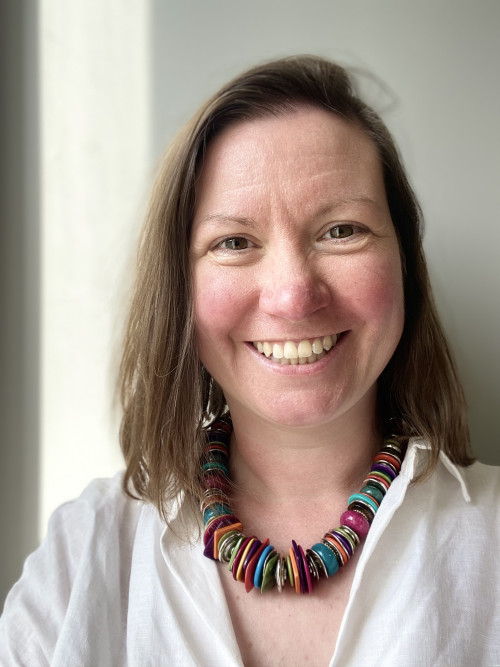
Three months after Cyclone Gabrielle the impact is still being felt by our affected communities and those supporting the recovery process, Te Whatu Ora Clinical Psychologist Frances Oliver says.
The time frame and pathway of rebuilding will be different for everyone affected, as will be the road for psychological recovery as people often cope in different ways, Dr Oliver says.
“Rebuilding and recovering following a major disaster can be an emotional stage, with feelings ranging from frustration to grief to optimism when achievements are realised along the way.
“And even if you were not directly affected, visual reminders of the impact of the cyclone or working to support the recovery can cause strain. It’s also common for reminders of the event, such as recent rainfall, to bring back feelings of anxiety and memories of the day.”
Dr Oliver says the love and support of whānau and friends, as well as making time for self-care, will help many people through this difficult time.
“Basic things, such as eating well and getting enough sleep, make a big difference to your mental wellbeing, as does connecting with people you love and doing things that you enjoy.”
Te Whatu Ora and Te Aka Whai Ora have worked alongside primary care providers and a number of other agencies and iwi providers to provide mental wellbeing support to affected communities, with many kaimahi (staff) working from community hubs alongside rural response partners.
Dr Oliver says more than 200 people have received mental health first aid training, thanks to support from Red Cross and Te Pou, a national workforce centre for mental health, addiction and disability.
“By offering this training we’re trying to upskill our kaimahi and volunteers who work in affected communities, so they are better equipped to offer mental wellbeing support and can identify when somebody needs extra assistance.”
As part of the broader Te Whatu Ora mental wellbeing response, public health teams have been working closely with staff at schools, kura and early learning centres to support tamariki and rangatahi and connecting them with the necessary wellbeing supports.
The public health team has also worked with the Ministry of Education to distribute health resources to support the ongoing mental wellbeing response in schools, kura and early learning centres.
On Sunday, as part of a billion-dollar Cyclone recovery package, the Government outlined $10 million for community-led mental health and wellbeing support, including extending the Mana Ake – Stronger for Tomorrow programme developed following the Christchurch quakes into every school in Hawke’s Bay and Tairāwhiti.
Mana Ake is a holistic, school-based mental wellbeing programme that helps give primary and intermediate school-aged tamariki the resilience and support they need, when they need it, to cope with the challenges that life can throw at them. It includes whole-of-classroom, group-based and individual programmes and supports. It also provides advice, guidance and workshops for parents, whānau and teachers.
Dr Oliver welcomed the additional funding and emphasised that help is available for people who need more support themselves or are supporting a loved one or young person.
Te Whatu Ora funds a number of free and easily accessible wellbeing supports.
These include face-to-face primary mental health and addiction support via participating GP clinics, Kaupapa Māori, Pacific and youth specific services. These services are free and available without a referral.
Where you can seek help
- Log on to wellbeingsupport.health.nz to find a service close to you or you can call or text Need to Talk 1737 any time to talk with a trained counsellor.
- At most general practices you can phone and book in to see a Health Improvement Practitioner (HIP), a registered mental health professional who provides advice and support promoting self-management, and connects people to other services they may need. Every day, HIPs have appointments that are not pre-booked so you can phone a general practice where you are enrolled and book in on that day.
- The Depression Helpline – Call 0800 111 757 or text 4202 to talk to a trained counsellor about how you are feeling or to ask any questions.
- Youthline – Call 0800 376 633, text 234, email talk@youthline.co.nz, or go to co.nz for an online chat.
- The Lowdown – Text 5626 for support to help young people recognise and understand depression or anxiety.
- Healthline – Call 0800 611 116 for health advice and information.
- Alcohol Drug Helpline – Call 0800 787 797 to speak with a trained counsellor.
- Tips and support, go to org.nz.
Free wellbeing apps
- You can download the Groov and Headstrong wellbeing apps free for android and Apple phones. Just go to Google Play or the Apple app store.
Rural Support Trusts
A local Rural Support Trust (RST) is a great place to access free and confidential support and advice. This nationwide network, run by local people, helps farming families and rural communities.
RSTs have facilitators trained to recognise issues with mental health and wellbeing. They can also put you in touch with services including health information or financial support.
You can give them a call to talk through your options. Call 0800 787 254 (0800 RURAL HELP) to arrange a free and confidential chat at a place that suits you, or visit rural-support.org.nz
Farmstrong
Farmstrong is a nationwide wellbeing programme for the rural community. Their aim is to help you live well to farm well. On their website you can find a range of resources to help you manage your wellbeing. Visit: farmstrong.co.nz






Post your comment
Comments
No one has commented on this page yet.